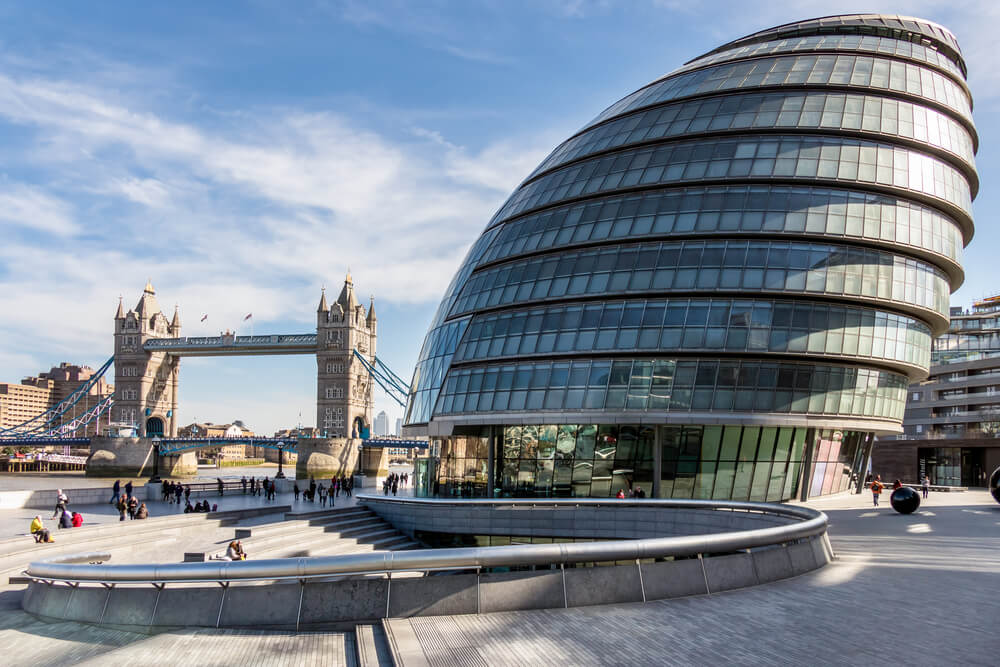Londoners learned this month that a building that once represented the UK’s faith in a bright, technology-led future is the latest of the city’s iconic landmarks destined to become a luxury hotel.
When it opened in 1965, what was then known as the Post Office Tower was the British capital’s tallest building, a feature that provided a clear line of sight for its state-of-the-art microwave telecommunications aerials.
Crammed with the latest computer hardware, and topped off with a revolving restaurant open to the public, the tower was operated by the General Post Office, a government department responsible for postal and telephone services.
It would be renamed as the British Telecom Tower, and then simply the BT Tower after telecommunications became one of the first targets for privatisation by the government of Prime Minister Margaret Thatcher in the 1980s.
As it undertakes wide-scale staffing cuts and property disposals to adapt to a new AI-driven technology age, BT has sold the now largely redundant tower to a US hotel group for £275 million.
Ability to change
An ability to change with the times is the hallmark of any successful and vibrant city. London led the trend towards converting redundant factories and docklands to residential and other uses from the 1960s onwards.
The trend towards hotels could be seen as a sign of forward-looking urban regeneration that recognises the strength of the city’s tourism sector.
But it also serves as a metaphor for the rapid shrinking of the civic realm in a declining Britain where funding to meet the wants and needs of the wider population is increasingly under stress.
A short walk across Tower Bridge from the Tower of London, London’s top-ranking tourist attraction, an old grammar school that educated the poor of the parish for 400 years until it became a technical college, reopened as a hotel in 2017.
Hotel guests can enjoy an evening cocktail beside the benches of an old magistrate’s
Just around the corner, hotel guests can enjoy an evening cocktail beside the benches of an old magistrate’s court where swift justice was once handed out to docklands’ petty thieves and brawlers.
It was among the 50 per cent of courts that closed in England and Wales in the decade to 2019, ostensibly to fund modernisation of the judicial system but in part to blame for current record waiting times for both victims and perpetrators to receive justice.
Victim to the trend
Cash-strapped local authorities have also fallen victim to the trend. As early as 1998, County Hall, which dominates the riverfront opposite Parliament, reopened as a hotel, the first of two that now occupy the site.
As headquarters of London’s government for more than 60 years, services from education, to public housing, to filling in the potholes had been administered from its six miles of corridors.
State-run education has now largely been farmed out to the privately run academy sector, while public housing has given way to half-empty luxury private developments that serve more as investment vehicles than as homes.
Local government has meanwhile been substantially downsized as municipal budgets become ever more burdened by meeting the costs of care for the elderly and others, while being starved of cash by central government.
In the process, libraries, youth clubs and community centres have closed as councils seek ways of maximising their diminished incomes.
 The glass sphere of City Hall now lies empty after surviving for just 18 years as the purpose-built seat of London’s municipal government
The glass sphere of City Hall now lies empty after surviving for just 18 years as the purpose-built seat of London’s municipal government
Opposite the Tower of London, the glass sphere of City Hall now lies empty after surviving for just 18 years as the purpose-built seat of London’s municipal government.
The Greater London Authority has decamped to an outer suburb to save on the rent due to its owner, the Kuwait investment Authority. The future of Norman Foster-designed Crystal is yet to be determined but it is ideally located to become yet another hotel.
Central government has not been slow to seize on the benefits of auctioning off London’s architectural crown jewels.
Admiralty Arch, which looks down the The Mall to Buckingham palace and has housed a series of government departments over its century-old existence, was sold to a Spanish investor in 2015 and will soon reopen as a luxury hotel.
That is the fate that has already befallen the old War Office nearby, where Winston Churchill maintained an office in the Second World War.
Deep pockets
Perhaps far-sighted investors are already covetously peering along Whitehall towards Westminster and pondering how long it might be before a future government decides to sell off the parliamentary estate.
The leaking and mouse-infested Mother of Parliaments is in a parlous state, with piecemeal and incomplete efforts to maintain the present structure that dates from 1840.
There have been various proposals over the years to relocate the Commons and the Lords, either to a new building in London or even to the north of England while the Palace of Westminster is renovated.
Any investor would need deep pockets before thinking of turning it into a hotel. An official report published last year said work to restore the building to its original glory could cost as much as £22 billion, subject to inflation, and might only be completed in 76 years.